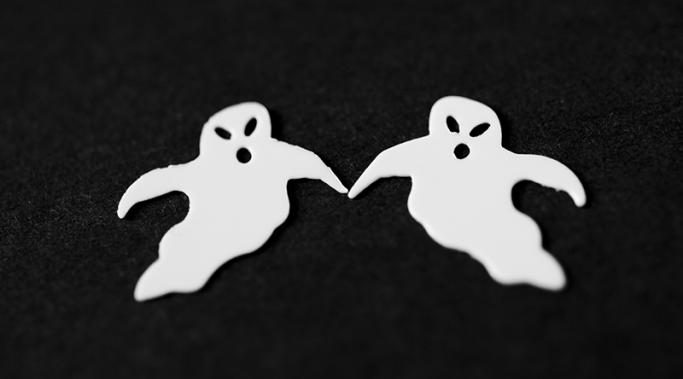Close your eyes for a moment and imagine: Suppose that one night there is a miracle, and while you’re sleeping your anxiety disappears. How would you know that it was really gone? What would be different? What would you notice the very next morning that would tell you that this miracle has occurred. What about others? What would they notice?
Does the possibility of such a miracle seem ridiculously outlandish? Something that can’t happen in the real world? Perhaps surprisingly, it really can happen.
Anxiety-Schmanxiety
Anxiety disorders manifest self-doubt in many ways. Undoubtedly, people living with anxiety disorders know different ways panic and anxiety challenge our lives. So today, I want to speak to the non-sufferer who does not understand. Loved ones need to know what anxiety disorders, and the massive amount of self-doubt they create, do to a person.
We are stronger than anxiety. We are not anxiety's prisoners. It’s true. No matter what our anxiety is doing to us in the moment, and no matter how beaten down we feel, ultimately we have power over our anxiety. You are stronger than your anxiety
In the world of persuasive writing, convincing people that sex makes someone feel good is a pretty simple task. We are wired for it. When we can’t orgasm with someone else, we can do it ourselves. Men, on average, think about sex 19 times per day and women, on average, ten. So even under normal, non-anxious, circumstances, we know healthy sex generally makes us feel better.
But what about sex as an anxiety treatment (Anxiety Disorder Treatments Are Effective)? When I am anxious, overwhelmed, or even paranoid, having sex — or more specifically, reaching orgasm — makes me feel good. After I have an orgasm, the anxiety is almost always gone. Whether it is because the act itself distracts me, or the various chemical brain reactions of orgasm squash the anxiety, or some combination of both, what is undeniable is that it works.
Anxiety causes are complex, and living with anxiety can be agonizing. Case in point: three people are walking together down a hallway in an office. A coworker passes by and says absolutely nothing. Person A thinks, “Hmmm. He seems in a hurry. Must be busy today.” Person B thinks nothing at all about this but continues to mull over whatever she is mulling over.
Person C thinks, “Oh no. He didn’t say anything to me. He must be upset. I must have offended him somehow. What do I do about this? How can I face him? Should I approach him or let him approach me? What if he doesn’t want me to work here anymore?”
One situation, three different reactions. Why? What causes the anxious reaction of person C?
If you are anything like me, you’ll find the news media to be a virtual minefield of anxiety and panic attack triggers. Television, radio, newspapers, magazines, and the Internet are constantly bombarding us with headlines about various happenings in the world. Whether local, national, or world news, the one thing that is certain is that media will find, create, or report on anything that will draw our attention.
More often than not, the news is negative. Anything tragic or controversial crowds the front pages and runs at the top of the hour. The phrase, “if it bleeds, it leads,” appears to be the measure of newsworthiness for any story. Constantly being bombarded with stories of danger, crisis, and violence is enough to leave even the most level-headed among us feeling anxious about our own safety and that of our loved ones.
Living with an anxiety disorder can make us feel very miserable. Naturally, we want the anxiety, no matter the type, to just go away. So we find ways to treat it and to manage it. There’s medication, therapy, or various alternative treatments. Sometimes, though, this just doesn't feel like enough.
Mental illness is a complicated medical diagnosis in the “best” of circumstances. All people have a variety of emotions, thoughts, and habits that make up their personalities. Determining that something rises to the level of disorder and needs medical intervention isn't always straightforward. For me, the effects of co-occurring bipolar and anxiety disorders make understanding what was happening to me difficult.
As far back as I can remember, I have always been paranoid, anxious, depressed, and manic. In fairness, I didn't realize I was manic; I just thought I was extremely happy. But I ended up in the psychiatric ward because I was suicidal, which is a byproduct of the extreme depression. It was during that visit that I was diagnosed with mental illness for the first time.
Human beings are much like beautiful gardens. Within each of us are many different types of lovely flowers. Everyone’s garden is unique to him or her; indeed, we have different flowers—different personality traits, strengths and talents, and interests and abilities. That said, all of our inner gardens, like the dirt-and-plant sort, have a similarity. They can become peppered with, and even overrun by, weeds. For people, a very common, very noxious weed is anxiety. What happens when our inner gardens become infested with the weed of anxiety, and what can we do about it?
When people know my diagnosis of bipolar and anxiety disorders — and given my line of work, most do — they tend to assign all of my actions to said diagnosis. Confrontation and disagreement, as an example, turn into signs that I am escalating to a manic state state or having an anxiety or panic attack. But anxiety disorder and confrontation don’t exactly go hand in and hand.








